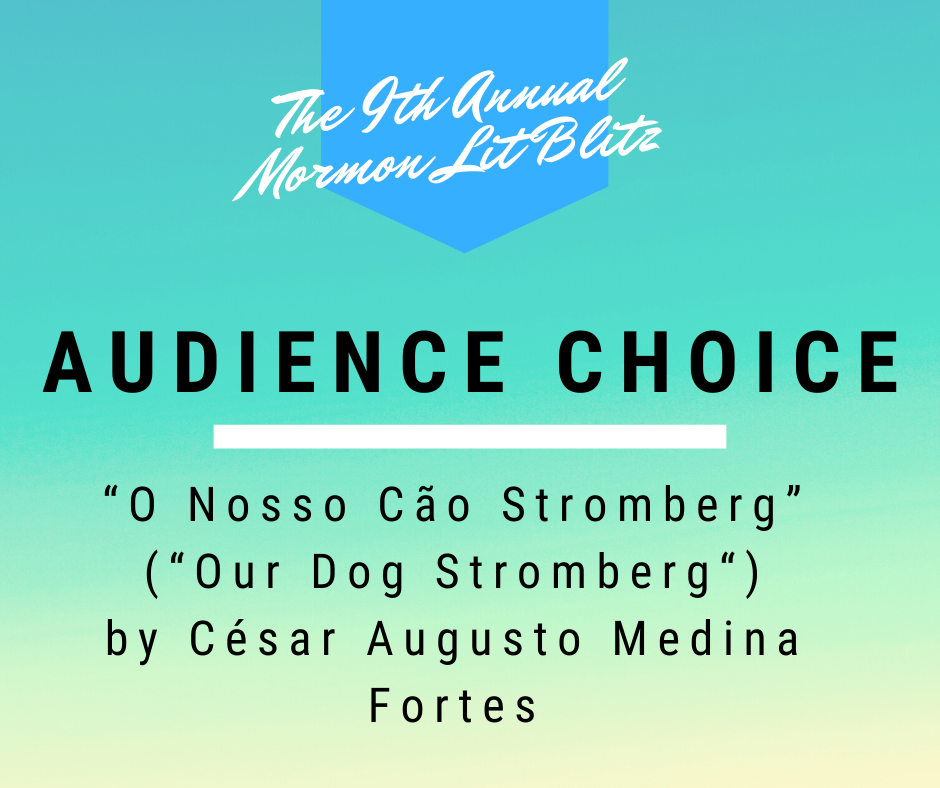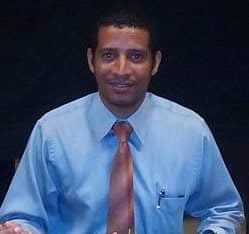This year’s contest will stand out in our memories. The year when the Church marked the 200th anniversary of the First Vision has turned out to be one where we also wrestle more than usual with the weight of mortality. By the time the call for entries went up, we were well into a pandemic with a high death toll and no end in sight. Between the writing and the contest itself, racist violence in the United States drew sustained international attention to the cause of racial justice. There was a lot for readers to reflect on as they read the finalists.
And this year, many of the finalists in the contest spoke to the things we were thinking about: sickness and death, closed temples and quiet moments, Joseph Smith and the Book of Mormon, Black experience and our call to discipleship across difference.
Thanks to support from our patrons, we’ll be awarding two prizes this year. There will be a $100 prize for the 1st place winner of the Audience Choice Award, and an additional $100 prize for the winner of the Judge’s Choice Award.
Audience Choice Award
We had over 300 people vote in the contest. Every single finalist had many voters choose it as their first, second, third, fourth place choices. With some help from Excel, we’ve tabulated people’s preferences.
The four audience favorite finalists this year were:
4th place: “Perfection is a Fullness” by Jeanine Bee
3rd place: “Part Heaven” by Madison Beckstrand
2nd place: “In the Locker Room at the Temple” by Darlene Young
and for 1st place, an essay from Cape Verde:
“O Nosso Cão Stromberg” (“Our Dog Stromberg“) by César Augusto Medina Fortes
Spotlight on César:
César Augusto Medina Fortes was born in the city of Mindelo, on São Vicente island in Cape Verde. He graduated as a teacher with a degree in comprehensive basic education from the Pedagogical Institute of Mindelo, and a degree in educational sciences and praxis from Jean Piaget de Mindelo University; he did postgraduate work in youth and adult education at the Federal University of Paraíba, Brazil; he also holds a Masters in Pedagogical Supervision and Evaluation from the University of Cape Verde (UNICV).
He was a primary school teacher for nine years, taught secondary education for seven years, and since 2017 he had been a coordinator for social action for the Ministry of Education in São Vicente. He has enjoyed writing since high school, and one of his favorite hobbies is writing the stories of his family.
The bio in Portuguese:
César Augusto Medina Fortes Natural da cidade de Mindelo, ilha de São Vicente, Cabo Verde. Formado como professor de Educação Básica Integral pelo Instituto Pedagógico de Mindelo, Licenciado em Ciências da Educação e Práxis Educativa pela Universalidade Jean Piaget de Mindelo; pós-graduado em Educação de Jovens e Adultos pela Universidade Federal de Paraíba, Brasil; mestrando em Supervisão Pedagógica e Avaliação pela Universidade de Cabo Verde (UNICV). Foi professor do Ensino Primário durante nove anos, lecionou por sete anos no Ensino Secundário e desde 2017 é coordenador de ação social na delegação do Ministério de Educação em São Vicente. Gosta de escrever desde o tempo que andaandava no liceu. Um dos meus passatempos preferido é escrever a história da nossa família.
Judge’s Choice Award
This year, we invited Katherine Cowley to select the recipient of the Judge’s Choice award. Katherine Cowley is a past winner of the Mormon Lit Blitz and of Segullah’s annual writing contest. She is currently leading the team creating an anthology of the first five years of finalists in the Mormon Lit Blitz. Her debut novel, The Secret Life of Miss Mary Bennet, will be released in Spring 2021.
The Judge’s Choice Award goes to:
“Part Heaven” by Madison Beckstrand
The following is a brief citation that Katherine Cowley provided for the award:
Madison Beckstrand’s poem, “Part Heaven,” is both brilliantly written and timely. The poem takes a simple moment–a black woman having her hair done by her mother–and uses this moment to expand our understanding of history, culture, race, family, sacred ordinances, and the very nature of God. The poem does not shy from struggle, and addresses the black pain not just experienced in broader society, but in our religious communities (“Divine wrath smells like chemical straighteners–stings like compliments from strangers”). Intrinsic in this experience is the weight of memory, and “the many that bled…for the future.” The imagery of blood has extra significance in light of the current worldwide protests over the killing of George Floyd and the treatment of blacks in the United States and worldwide. The poem also explores the importance of physical moments: touch is used to minister to others as the Savior did, to perform sacred ordinances, to give blessings, and to style hair. The final stanza paints a beautiful picture of divinity, and the way that the act of having a mother do your hair can be a window to understanding the nature of God.
Spotlight on Madison Beckstrand:
Madison Beckstrand is a writer and university student majoring in English Education. She loves writing, sewing, creating, and uses her talents to connect with her family and community. Madison is involved with her local chapter of Black Lives Matter, The Church of Jesus Christ of Latter-Day Saints’ Genesis group, and the Humanity Sews project. She plans to write much more and is only encouraged by everyone’s support.
Please join us in congratulating César Augusto Medina Fortes and Madison Beckstrand on their awards in this year’s contest.
We hope you’ll join us in August to read the top three finalists in the Spanish-language “Palabras de Mormon” contest, co-sponsored by the Cofradía de Letras Mormonas and the Mormon Lit Lab. And stayed tuned for updates on our forthcoming anthology and future publishing projects.
-Nicole and James Goldberg, Editors









